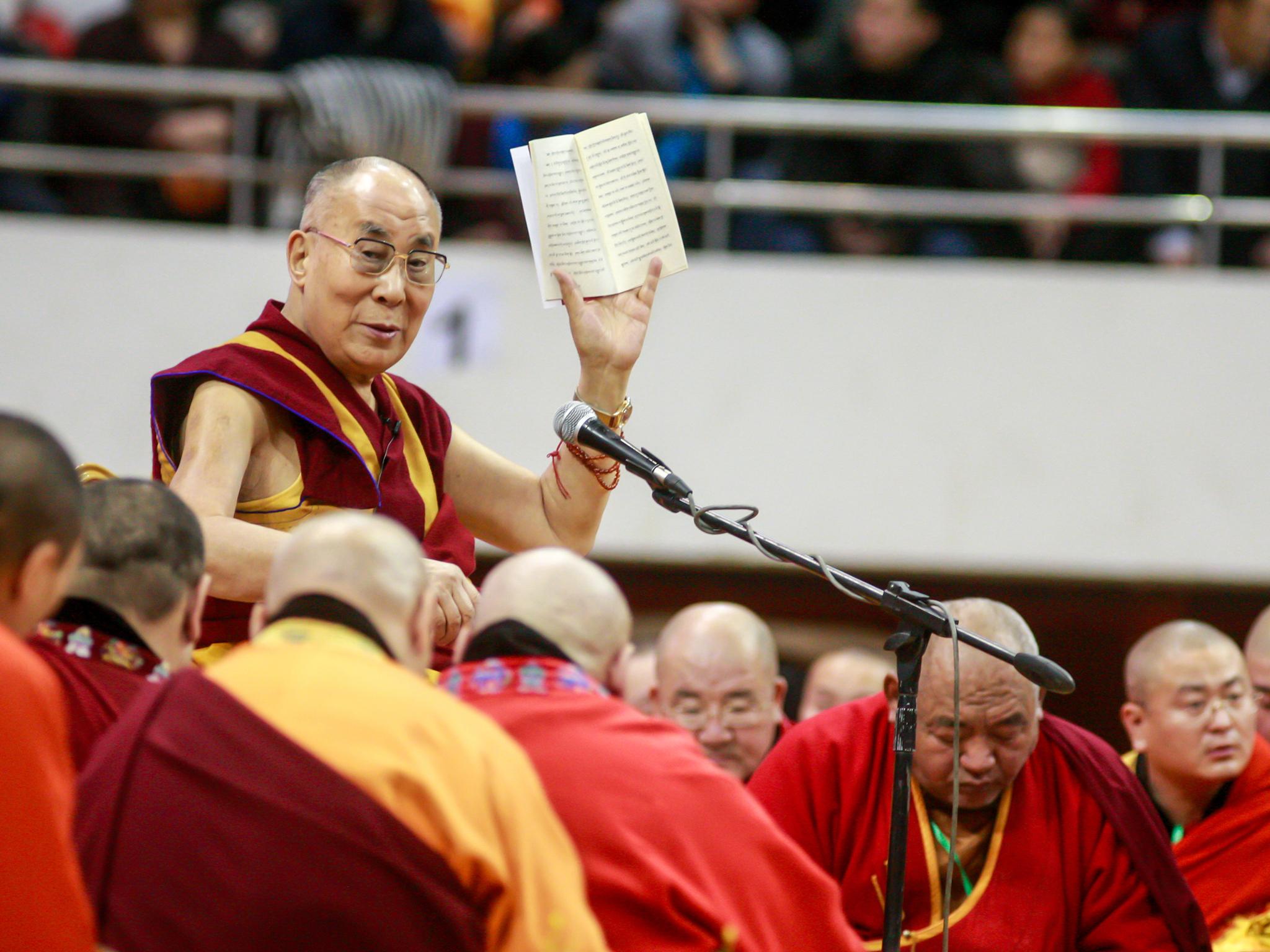Dalai Lama says he is a 'son of India' after nearly 60 years exiled from Tibet
The religious leader crossed the border in 1959 after travelling on foot for 15 days

Your support helps us to tell the story
From reproductive rights to climate change to Big Tech, The Independent is on the ground when the story is developing. Whether it's investigating the financials of Elon Musk's pro-Trump PAC or producing our latest documentary, 'The A Word', which shines a light on the American women fighting for reproductive rights, we know how important it is to parse out the facts from the messaging.
At such a critical moment in US history, we need reporters on the ground. Your donation allows us to keep sending journalists to speak to both sides of the story.
The Independent is trusted by Americans across the entire political spectrum. And unlike many other quality news outlets, we choose not to lock Americans out of our reporting and analysis with paywalls. We believe quality journalism should be available to everyone, paid for by those who can afford it.
Your support makes all the difference.The Dalai Lama has described himself as a “son of India” and praised the country for its secularism.
The religious leader has been in India since 1959 and crossed the border after a 15-day journey on foot.
He reserved praised for the country he has lived in since his exile and said India had helped him develop “broader thought”.
“I am living in India for the past 58 years and hence, I am a 'son of India'," he said in a speech at an international seminar on Buddhism in Bihar, the Times of India reported.
"In the field of secularism there is no other country like India.
"When I was in Tibet my thoughts were narrow. But when I moved out of my homeland and came to India, I developed a broader thought about Tibet as well as about the entire world," he added.
He also emphasised that education would help develop tolerance among people.
"Today's system of education is making us a consumer. The traditional mode of education was good," he said.
Subscribe to Independent Premium to bookmark this article
Want to bookmark your favourite articles and stories to read or reference later? Start your Independent Premium subscription today.
Join our commenting forum
Join thought-provoking conversations, follow other Independent readers and see their replies
Comments